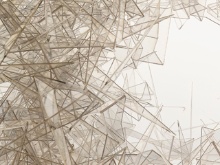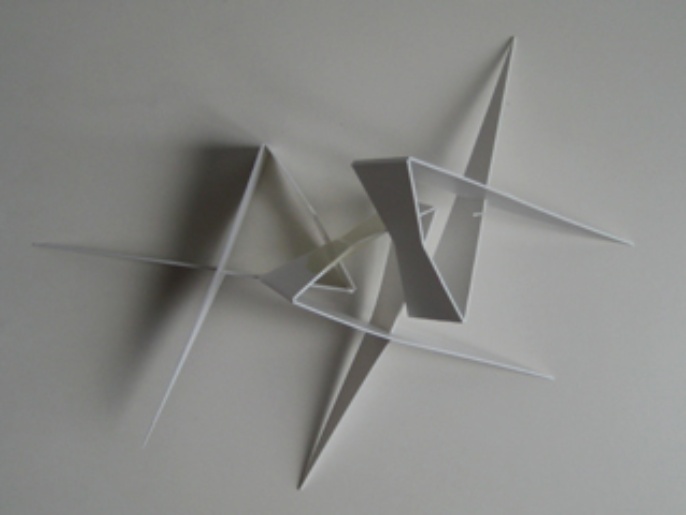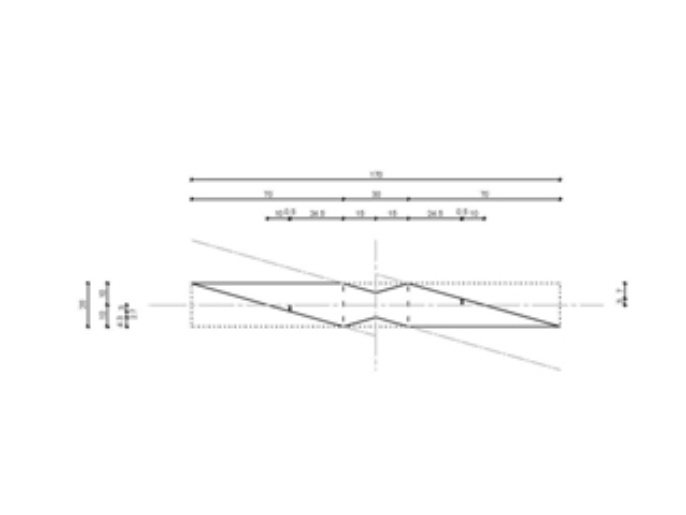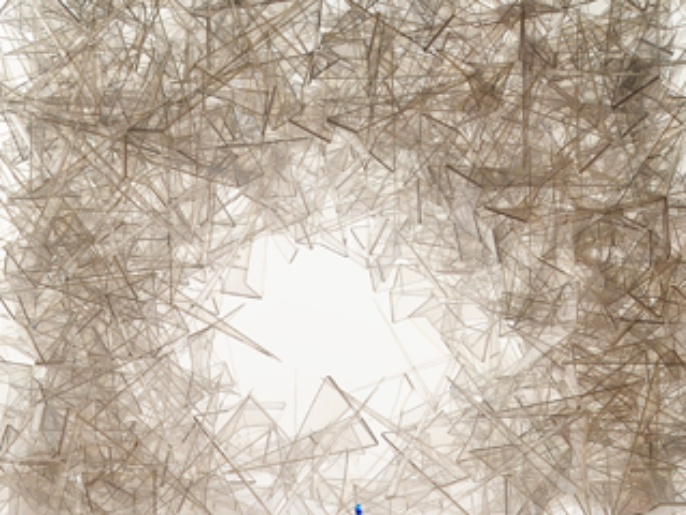The aim of this investigation was to produce a particle system, that can be quickly and cheaply produced from a sheet-material and that allows for high stability of the overall system under self-weight, using relatively loose packing. The basic particle design has been developed from principles used in industrial packaging material. Using a simple folding principle, loops can be created, that have the potential to interlock with their ends and through their holes. This initial design has further been calibrated with regards to its point of gravity, size and weight. The final particle takes 9.1 seconds to produce and weighs 1 gr. The capacity of the particle to form stable arches and caves is investigated in an experimental series using inflatable formwork. In order to observe three-dimensional interlocking behaviour, transparent material is used for the design of the loops. Special backlighting techniques allow for extracting the edge-lines of each particle in their final position. Several experiments were conducted under constant conditions. In every case, a stable arch formed, that was relatively high if compared to similar particle systems. The packing of the aggregate is comparatively loose and thus allows a relatively large light transmission. Digital imaging techniques have been used to verify and compare these results. Further investigations are aiming at more varied spatial arrangements as well as a gradation of the aggregate throughout the entire arrangement. The capacity to adapt continuously to changing external loads is another area of future research.
Material Computation Brief






